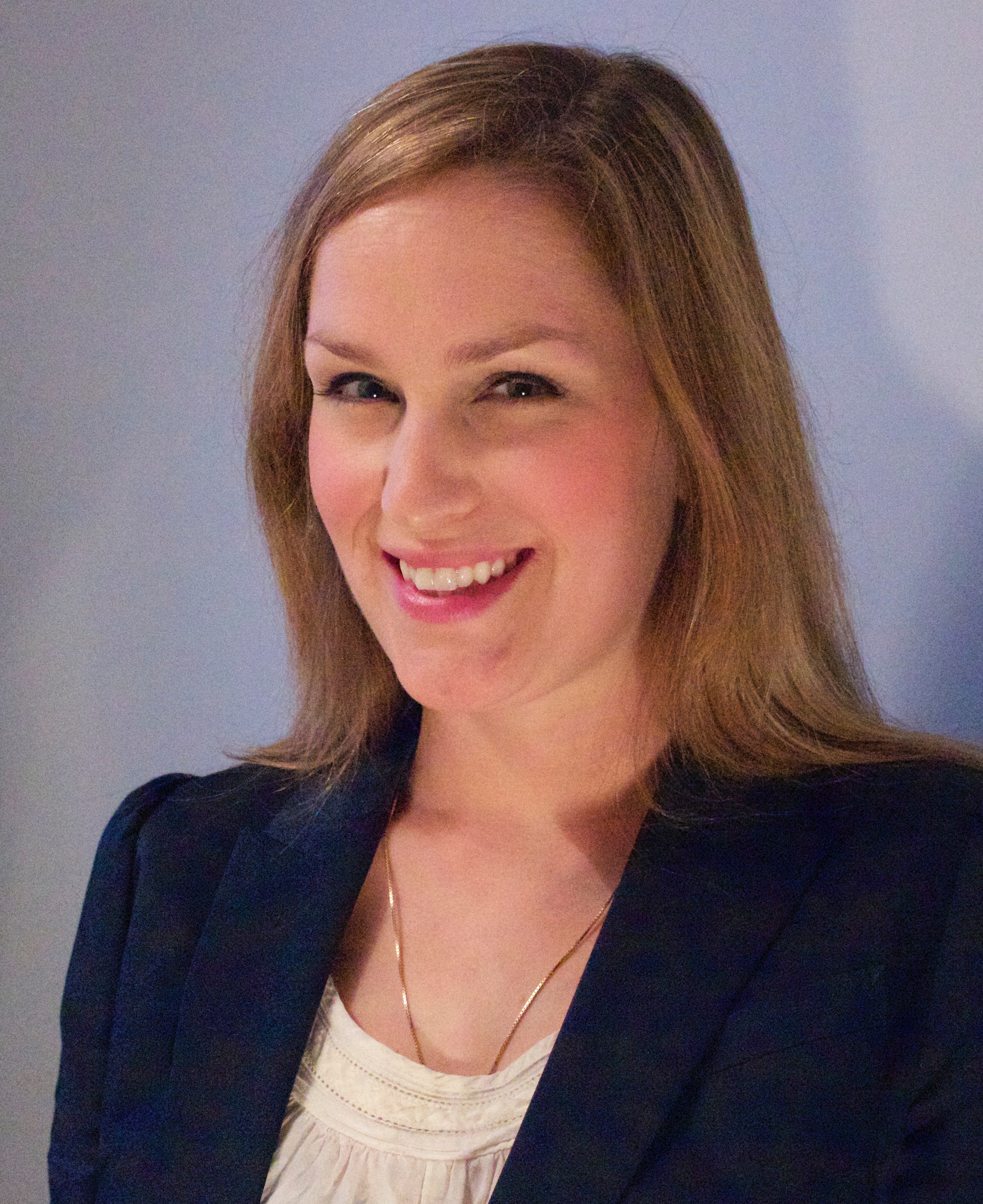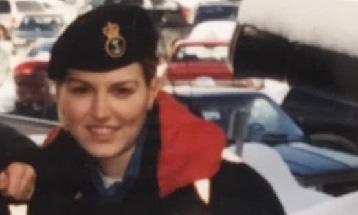Back then, she was in the military, working as a recruiter for the Canadian Armed Forces (CAF) in Montreal. “While working in recruiting, I was really lucky to do public affairs training and get some good experience in that area,” says Alexandra. “It prepared me really well for—and helped me get—my first job in the public service as a communications advisor in the Veterans Affairs portfolio. The skills were a perfect match.”
Falling on her back
Originally from Halifax, N.S., Alexandra enrolled in the Reserve Force in 2003. She was still a student at McGill University in Montreal. She did not know what to expect at basic training, but found it to be quite an experience. “The focus is so much on teamwork; it’s set up so that you can’t succeed unless you work together to accomplish tasks. It’s one of the hardest things I’ve ever done.” Unfortunately, it was during training that she took a fall on concrete and injured her back and neck. As a result, she began physiotherapy in hopes that the injuries would heal.
Meanwhile, Alexandra worked part time at her regiment—the Canadian Grenadier Guards. She often worked with the recruitment office. Her team would visit universities and colleges in the Montreal area. In 2006, unsure what she wanted to do after graduation, she began working full time at the Canadian Forces Recruiting Centre. “Wearing the uniform is something very special. I was proud to represent CAF and to work with the public and inform them about the work that we were doing.” After years of physiotherapy, it became clear that effects of her back and neck injuries would linger. This limited the roles she could play in the military and ultimately resulted in her release.
Landing on her feet
Knowing that her release from the military was a matter of time, Alexandra began to look for work in the federal government. It helped that she was bilingual. The government also recognized the value of her public-affairs training and military experience. In 2011, she started to work with the Veterans Review and Appeal Board as a communications advisor. “It was a real 180 degree shift. I went from enrolling mostly young and very healthy people into the military, to working on the other end of the spectrum, with clients who are mostly Veterans with disabilities,” she says. “With my experience and having many friends with service related injuries, I had a lot of empathy for these Veterans.” In 2018, Alexandra found her way into policy work at VAC, which she describes as “a great department to work for…the people who work here are very passionate about what they do.”
Being a woman in the military and in the public service
Alexandra never felt that being a woman was a barrier for her in the military. “I worked with many wonderful people—including many women—and had a very positive experience in the Forces,” she says. When she left the military, her Commanding Officer at the Recruiting Centre was a woman. “She was a great role model, and very supportive of my career change.” Alexandra has also had a great experience working at VAC, where diversity is promoted. She has had many excellent role models in her bosses, all of whom have been women.
Preparing for transition before leaving the CAF
Alexandra considers her transition from the military to be a good one. But she recognizes that her experience differs greatly from those of many other Veterans and it isn’t always easy to adjust to life after service. This is especially true for those who spent their entire adult life and career in the military. When asked what advice she has for anyone preparing for release, she offered, “The skills and experience you have from the military are so transferrable to many jobs in the civilian world. There are lots of opportunities out there and many organizations and programs to help you figure out where you want to land. Especially at VAC. Anyone releasing should find out what we have to offer to help them find a new career.”
Date published: 2020-02-20




